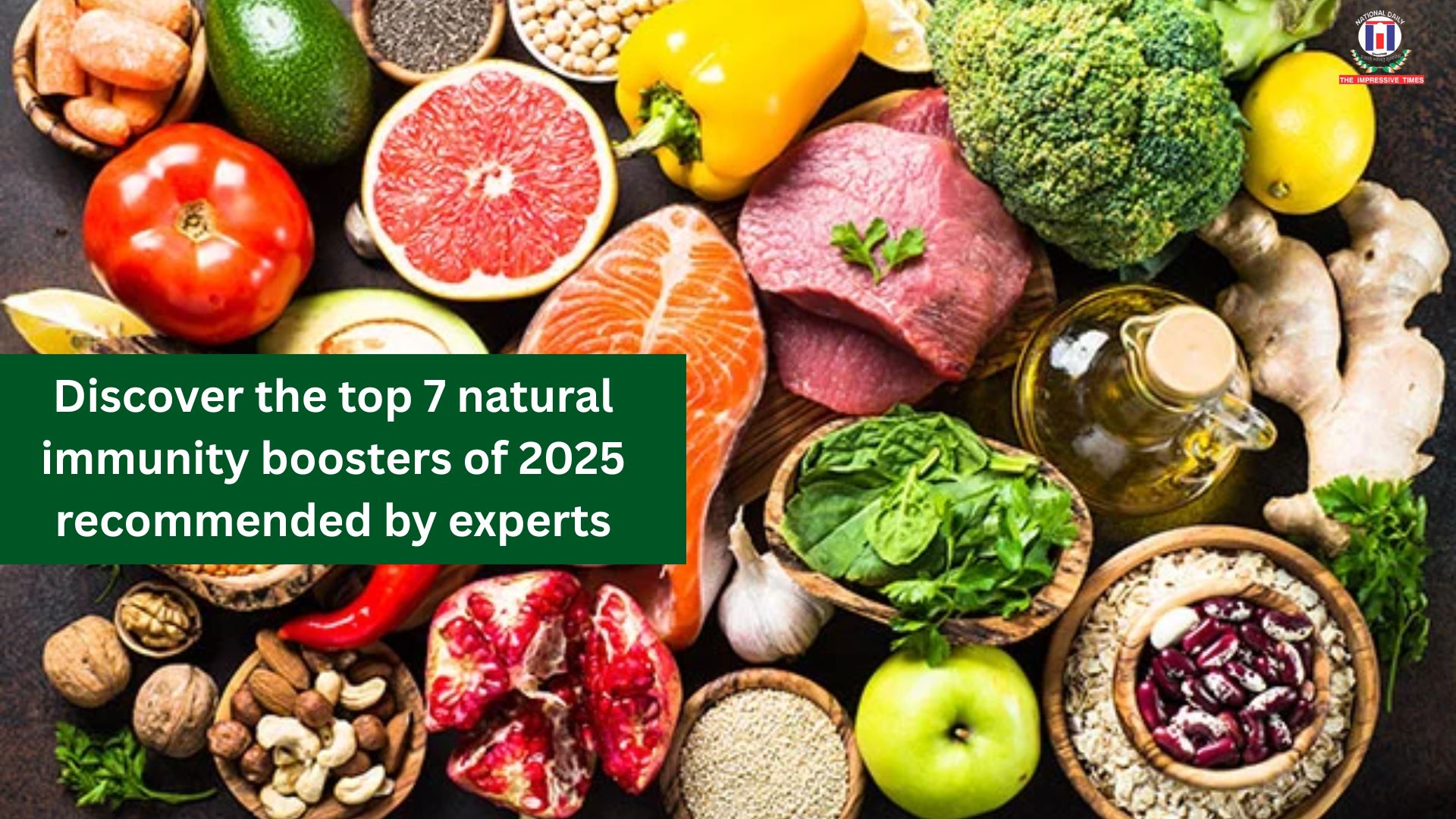
Lifestyle Correspondent
info@impressivetimes.com
With rising pollution levels, erratic lifestyles, and recurring viral outbreaks, boosting immunity has become a cornerstone of modern wellness. While pharmaceutical options exist, a growing number of health professionals and researchers are now advocating for natural, holistic approaches that draw from both traditional Indian medicine and modern science.
From herbs and spices to superfoods and probiotics, nature offers a treasure trove of immune-supporting options. Here’s a comprehensive look at the top immunity boosters recommended by nutritionists, doctors, and Ayurveda practitioners—designed for everyday use and backed by centuries of wisdom.
What it is: Giloy, known as “Amrita” in Sanskrit (meaning the root of immortality), is a climbing shrub that plays a central role in Ayurvedic immunity therapies.
Benefits:
Enhances immune cell function (especially macrophages).
Reduces symptoms of recurrent fevers and allergies.
Contains antioxidant and anti-inflammatory compounds.
How to use: Take 1–2 teaspoons of Giloy juice on an empty stomach or as prescribed in tablet form.
Clinical Note: A 2022 study published in the Journal of Ethnopharmacology found that Giloy extract significantly improved immune modulation in patients with recurrent infections.
What they are: Citrus fruits (orange, lemon), amla (Indian gooseberry), guava, and bell peppers.
Benefits:
Boost production of white blood cells.
Help repair tissue and fight oxidative stress.
Improve iron absorption.
Daily Intake Tip: One amla contains as much Vitamin C as 20 oranges. Having it raw or as a juice shot in the morning is highly effective.
Research Insight: According to the National Institute of Nutrition, consistent intake of Vitamin C can reduce the duration of common colds by 8–14%.
What it is: Garlic contains a compound called allicin, which has powerful immune-enhancing and antibacterial properties.
Benefits:
Fights bacterial, viral, and fungal infections.
Acts as a natural detoxifier for the body.
Reduces inflammation markers like CRP (C-reactive protein).
Usage: Crush and let raw garlic sit for 10 minutes before consuming. Cooked garlic also retains benefits but in lesser concentration.
Tip from Experts: Nutritionist Rujuta Diwekar suggests consuming one clove of garlic daily with warm water during the winter months.
What they are: Yogurt, curd, kanji (fermented carrot drink), kefir, and pickles.
Why they matter:
70% of the immune system resides in the gut.
Probiotics maintain gut flora balance.
Reduce inflammation and regulate immune responses.
How to include: Add 1 serving of curd or a glass of kanji with lunch. Avoid over-pasteurized or flavored products, which kill good bacteria.
Scientific Backing: The Harvard Medical School affirms that a balanced microbiome improves resistance to viral infections.
What it is: A powerful adaptogen used in Ayurveda, Ashwagandha helps the body manage physical and mental stress—both key immunity depressors.
Health Effects:
Reduces cortisol (stress hormone).
Improves white blood cell response.
Supports thyroid function and energy levels.
Forms: Capsules, powder (churna), or infused in warm milk at bedtime.
Wellness Insight: A 2021 Indian Council of Medical Research (ICMR) study showed improved immune markers in those taking Ashwagandha for 8 weeks.
Why it works: Turmeric contains curcumin, a potent anti-inflammatory compound. But it’s only bioavailable (absorbable) when paired with piperine from black pepper.
Benefits:
Reduces inflammation and infection risk.
Supports detox and liver health.
Boosts natural antibody response.
How to take: Golden milk (haldi doodh), turmeric tea with pepper, or as a capsule.
Proven Use: Used since the Vedic era and mentioned in ancient Ayurvedic texts like Charaka Samhita for “rasayana” (rejuvenation).
Popular blends: Tulsi (holy basil), cinnamon, ginger, mulethi (licorice root), and lemongrass.
Benefits:
Tulsi improves respiratory health.
Ginger boosts circulation and metabolism.
Mulethi acts as an anti-inflammatory agent.
Best Time: Morning or post-meal. Avoid overconsumption of mulethi if you have high blood pressure.
Lifestyle Tips to Enhance Natural Immunity:
Sleep: Aim for 7–8 hours of uninterrupted rest.
Hydration: 2–3 liters of water daily flushes out toxins.
Sunlight: 15 minutes of early morning sun aids in Vitamin D synthesis.
Exercise: Yoga, brisk walking, or strength training improves lymph flow and immune response.
Building a strong immune system is not an overnight miracle. It’s a daily lifestyle practice that combines clean nutrition, mental peace, and regular physical activity. Integrating these natural immunity boosters—guided by expert advice—can help your body become more resilient to infections, fatigue, and chronic conditions.
Disclaimer: Always consult a certified health professional before starting any herbal or dietary supplementation, especially if you have pre-existing conditions.














No Comments: